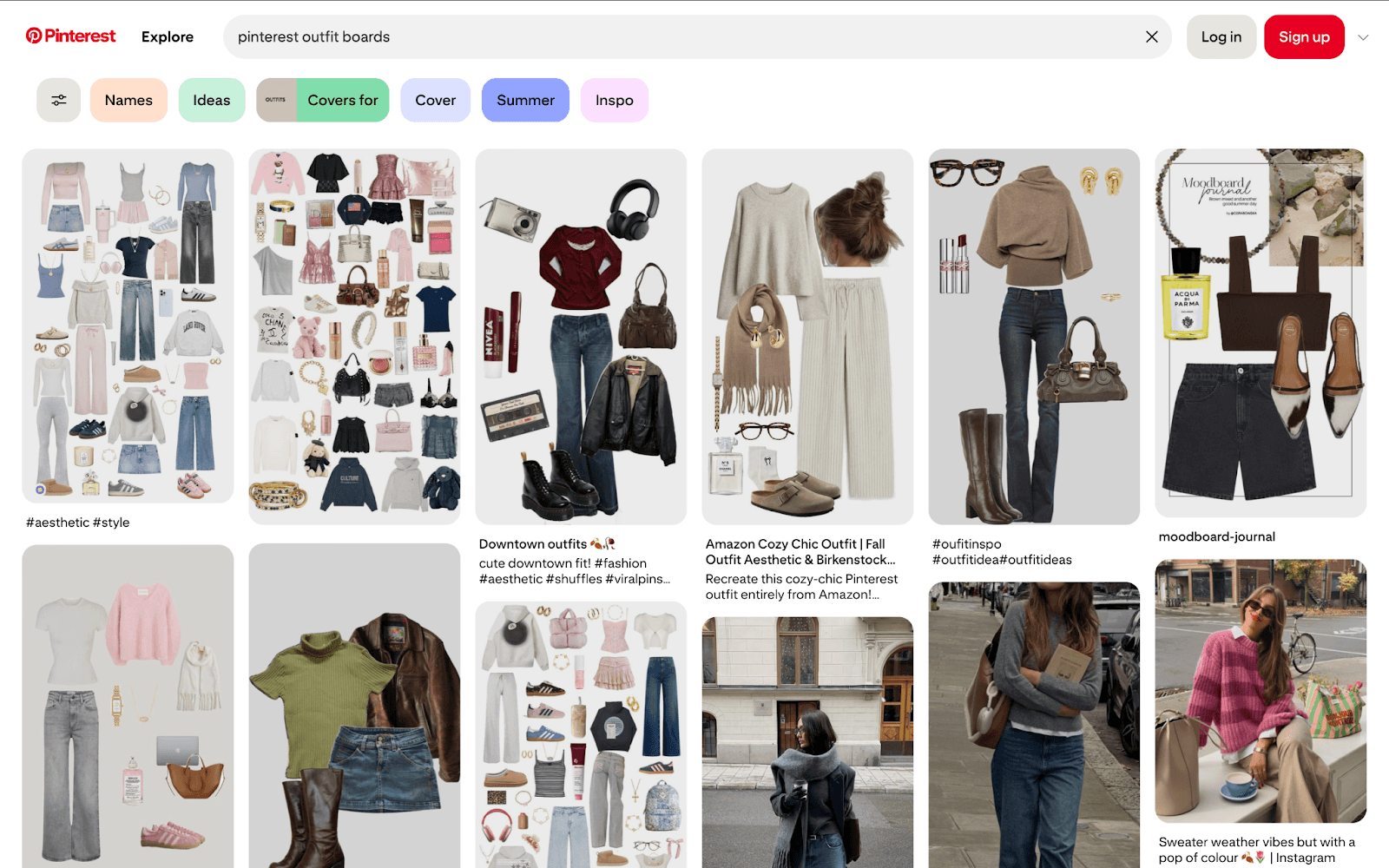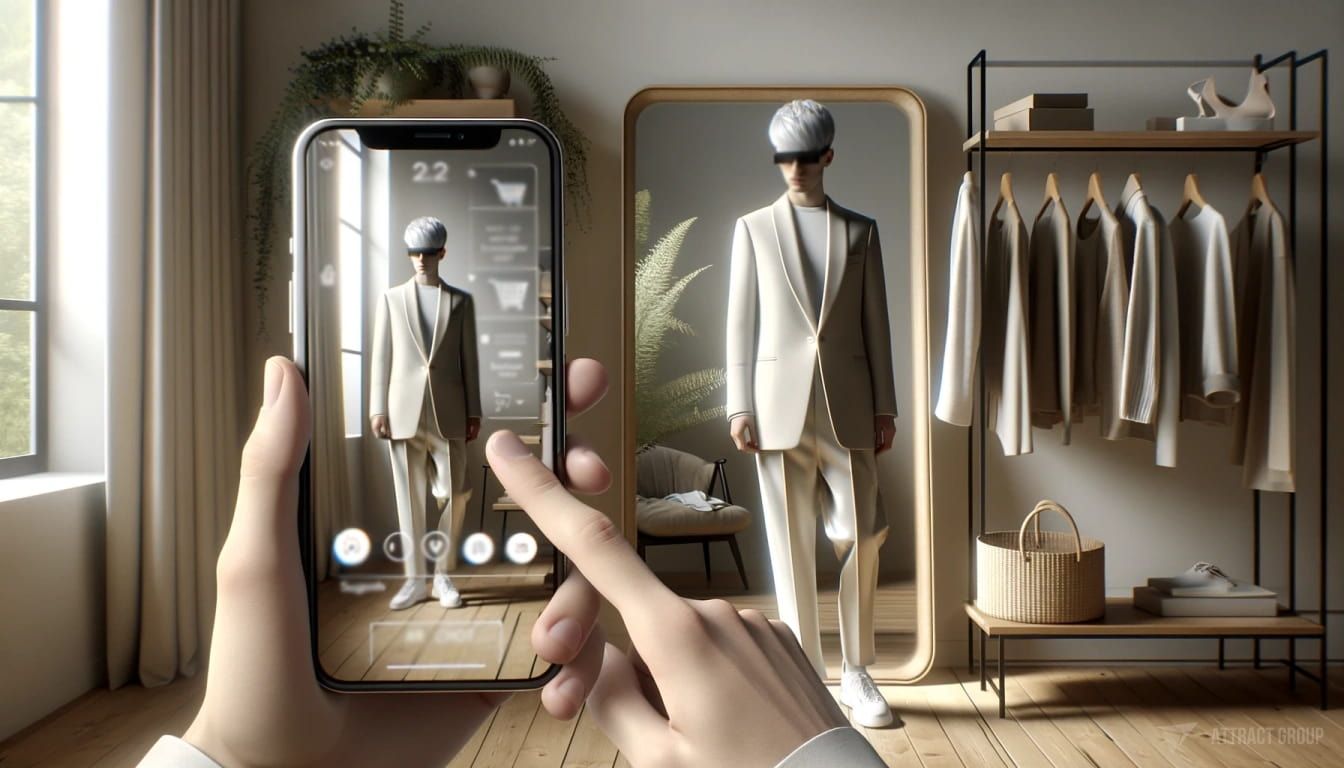They were raised on Pinterest boards and TikTok hauls. Their favorite mall is the For You page. And when it comes to shopping, Gen Z doesn’t just want to buy, they want to build, remix, and co-create.
For this digital-native generation, fashion isn’t a product. It’s a process. One that unfolds in a split-screen reality, where personal style is shaped by algorithmic influence, group chats, and avatar styling apps, often simultaneously.
And as their economic power grows (Gen Z’s global income is projected to hit $33 trillion by 2030), so does their influence on retail innovation. From digital shopping tools to fashion tech experiences, Gen Z expects more than convenience, they expect collaboration.
Their Shopping Habits: Click, Curate, Customize

Gen Z approaches fashion shopping more like content creation than consumption. Instead of passively buying what’s trending, they:
Save first: Pinterest mood boards, saved TikToks, and IG collections are starting points
Style virtually: AI outfit generators, AR try-ons, and avatar styling apps fuel experimentation
Shop selectively: They often hold off on purchasing until an item fits their personal aesthetic, aligns with values, or performs well in social content
According to multiple studies, over 70% of Gen Z consumers say they’re more likely to buy from a brand that offers virtual try-on tools, and over half say they want more interactive shopping experiences, not less.
They’re not impulse buyers. They’re intentional stylists navigating thousands of options with a fine-tuned sense of self-branding.
Aesthetic Is Everything, But It Has to Be Theirs
Gen Z doesn’t follow trends. They break them, remake them, and personalize them.
Whether it’s Y2K-meets-futurism or a pastel-coded subculture with five niche references, Gen Z style is hyper-specific and self-edited. Customization and aesthetic control aren’t perks, they’re expectations.
Fashion platforms that allow Gen Z users to remix outfits, switch colorways, or filter by “vibes” rather than just categories win their attention.
Want proof? In our article Virtual to Reality, we explored how 84% of Gen Z say their avatar style influences how they dress in real life, suggesting that identity isn’t just flexible, it’s fluid across platforms.
The Rise of Fashion Tech: Try-On Tools, Avatars & AI Stylists

If millennial shopping was about convenience, Gen Z’s is about interactivity.
They want to:
Try on clothing before they buy – digitally or in AR
Style outfits before they hit checkout
See themselves reflected in brand visuals, avatar options, and inclusive fashion tech
Use AI to co-create (not just browse) their next look
From AI outfit generators to augmented reality fitting rooms, Gen Z is embracing tools that give them styling autonomy. Brands like DRESSX meet this demand by offering styling platforms, digital wardrobes, and virtual looks that can be tested, worn, and shared across social platforms.
Want to dive deeper into how this generation sees fashion as tech? Read our blog on what Gen Z wants from digital fashion.
How DRESSX Helps Brands Connect with Gen Z

At the intersection of fashion, gaming, and technology, DRESSX is redefining how brands reach Gen Z.
Whether it’s through high-quality digital wearables, AI-generated styling tools, or branded activations across Roblox, Meta, and Snapchat, DRESSX empowers brands to create immersive, personalized experiences that speak Gen Z’s visual language.
Why brands work with DRESSX:
Platform-native collections for avatars, AR filters, and digital styling
Creative services that merge fashion credibility with tech fluency
Cross-platform reach from gaming to social content
Data-driven insight into Gen Z trends, behaviors, and subcultures
In short, DRESSX helps brands show up in the right aesthetic, on the right platforms, with the right tools, from the scroll to the screen to the story.
IRL vs URL: For Gen Z, It’s All One Closet
There’s no divide between physical and digital style. Gen Z shoppers blend the two seamlessly:
They wear virtual outfits in photo shoots and content creation
They use AI-generated styling prompts to plan real-life looks
They take inspiration from their avatars’ style and color palettes
They experiment online before committing offline
This is why digital shopping experiences aren’t add-ons, they’re central. An avatar look can influence a festival fit. A digital corset can inform a real one. And in the world of Gen Z, if it doesn’t look good on both screens, it’s probably not worth buying.
Generation Z, Styled by Screens
Gen Z’s shopping behavior reflects a new kind of fashion fluency: one shaped by tech, taste, and total control. They’re editing in Canva, styling in AI, and shopping in stories. And they’re expecting the same energy from every brand they engage with.
If you want Gen Z’s attention, give them tools, not just options. Give them access, not just ads. And most importantly, give them ways to style their story, their way.
Because in a split-screen world, the only fashion that matters is the kind that lives on both.








